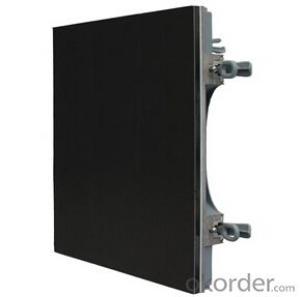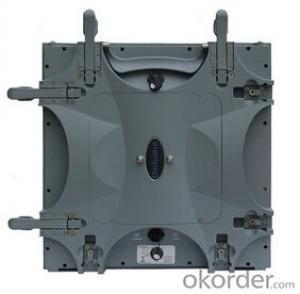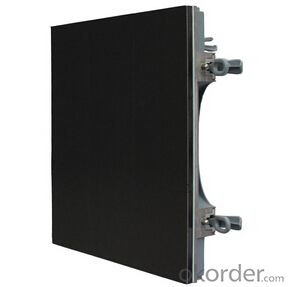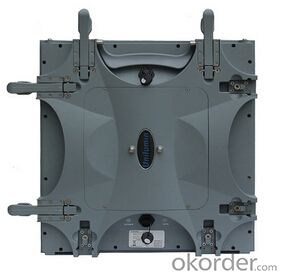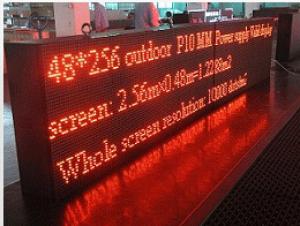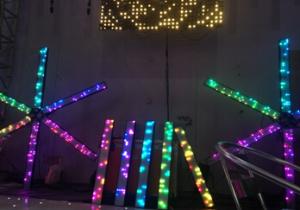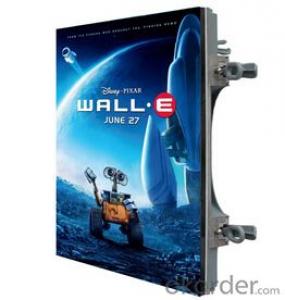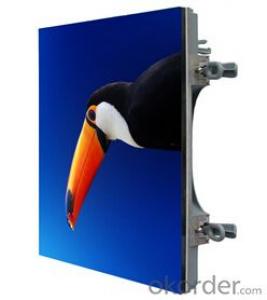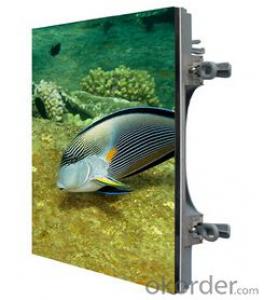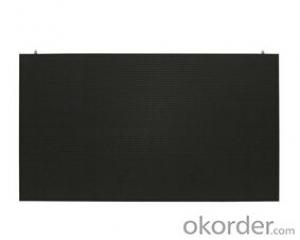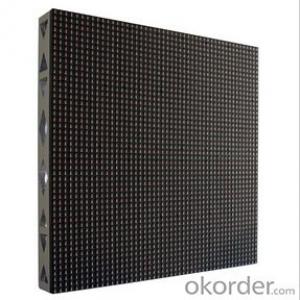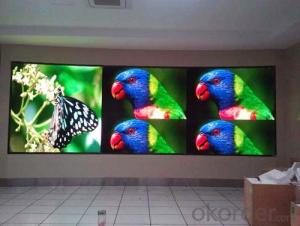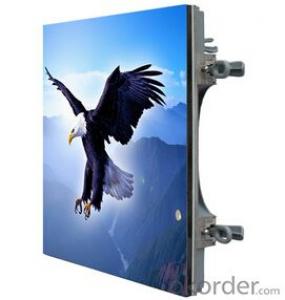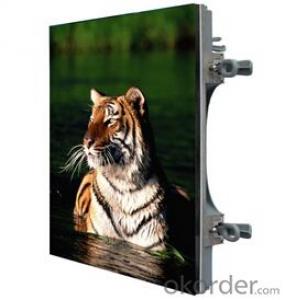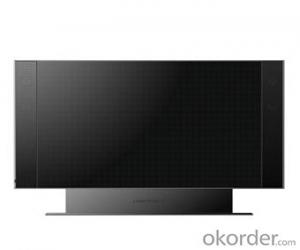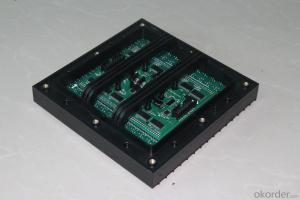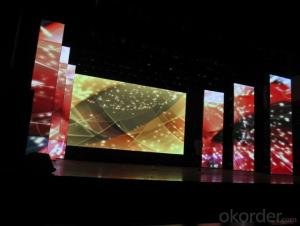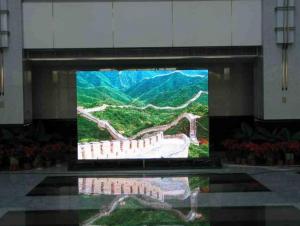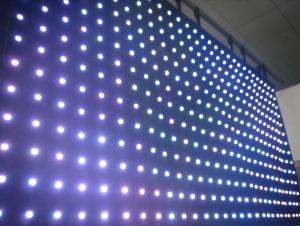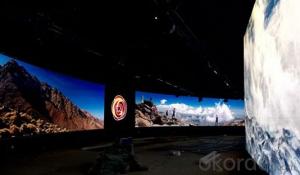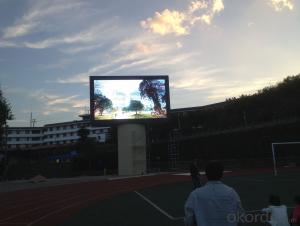UTV1.6 1.6mm LED Display High Pixel Density
- Loading Port:
- China main port
- Payment Terms:
- TT OR LC
- Min Order Qty:
- 10 m²
- Supply Capability:
- 10000 m²/month
OKorder Service Pledge
OKorder Financial Service
You Might Also Like
UTV Ultra HD Series
UTV1.6(1.6mm LED display)
Features:
1. Extremely high pixel density;
2. Black LED, phenomenal contrast ratio of 5000:1;
3. Aluminum cabinet design, light weight and high precision;
4. Extra wide viewing angle.
5. Vibrant images with uniform colors;
Parameter | Value |
Pixel Pitch | 1.667mm |
Pixel configuration | 1R1G1B |
LED type | 3-in-1 SMD1010 |
Brightness | 800 cd/m² |
Color temperature | 6500K |
Viewing angle | H: 160°; V:160° |
Pixel density | 360000 pixels/m² |
Recommended viewing distance | ≥1.7M |
Module size | 240mm×240mm |
Cabinet size | W480mm×H480mm×D86mm |
Weight | 11kg/panel |
Area | 0.2304 m² |
Material | Die-casting Aluminum |
Aspect ratio | 1:1 |
Ingress protection | IP30 |
Operating Temperature/Humidity | 0℃~+45℃/10~90%RH |
Storage Temperature/Humidity | -10℃~+55℃/10~90%RH |
Pixels per panel | 288×288 Dots |
Gray scale | 16 bits |
Processing depth | 65536 levels per color |
Color | 281.4 trillion |
Brightness control | Manual/Automatic |
Contrast ratio | 5000:1 |
Video frame rate | 50/60 Hz |
Rate refresh | ≥2000 Hz |
Input voltage | 110~240VAC |
Input power frequency | 50~60 Hz |
Input power <max> | 175W/panel |
Input power <typical> | 58W/panel |
Life Time | ≥100,000 Hours |
LED Wavelength | R:620~630nm G:520~535nm B:465~475nm |
Driving Method | 1/24 Scan, Constant Current |
Input signal | RF,S-VIDEO,RGBHV,YUV,YC & COMPOSITION,etc |
Rigging form | Hanging/Fixed with support bracket |
Data interconnection | CAT5 Cable ( L≤140m );multi-mode fiber ) ( L≤500m );single mode fiber ( L≤20km ) |
- Q: Ask to tell, or what decoder, mkv format can only put one, the rest of the mkv can not put any meaning?
- LED display support video format depends mainly on the LED display control software, generally supports a variety of formats of graphics and text pieces: TXT, DOC, RTF, AVI, JPEG, MOV, MPEG, DAT, VOB, BMP, JPG, TIFF, GIF, FLI, FLC, RMVB In fact, as long as you can play the video player, the display can be displayed! You put the display number of points set up, the video with the storm video playback, as long as the storm video to the LED display display area, the same size can be!
- Q: Led display and led lighting What is the difference?
- LED display and lighting are LED light-emitting diodes as light source. The difference is that the application of LED: LED display using dot matrix, the combination of different colors of light-emitting diodes, through the control system, power system, signal system and other forms of control, composed of LED device array display screen; and LED Lighting is a monochrome diode excitation, the pursuit of brightness, gray and white balance.
- Q: LED display power supply how to configure how many units with the plate is calculated.
- According to the unit board power calculation, P10 monochrome in general 10 to 12 blocks, indoor monochrome 12, indoor color 6, full color, then ask the unit board manufacturers, a board of how much power. And then calculate their own bar.
- Q: Led display support what video format
- Graphic effects display function: with the text to edit, zoom, scroll, animation and other functions. Can display a variety of computer information, graphics, images and two, three-dimensional computer animation, can be superimposed text. Broadcast system with multimedia software, you can flexibly enter and broadcast a variety of information
- Q: LED outdoor display which part of the composition
- Outdoor LED display is usually in the form of outdoor media. The main forms include road LED display, LED electronic display, LED full color screen, LED screen, balloon, airship, compartment, large inflatable model.
- Q: LED display a board dark light how is it?
- Measure the power supply module voltage low, adjust the fine-tuning (power module close to the indicator light at the fine) to make the voltage to the standard.
- Q: LED display more than the size of the area must be 380v
- LED display itself only need low-voltage DC power supply, whether it is 380V or 220V need to go through the buck and rectifier, which is the screen does not matter. Whether it is to use 380V or 220V depends entirely on the load balance of the power grid considerations, which depends not only on the size of the display, but also on the local grid capacity. In general, LED is weak devices, even if the display area and then large, the total power is also less than where to go, so you can use 220V single-phase power supply, but the power supply cable cross-sectional area to be larger, but the power circuit Much simpler.
- Q: Led display brightness is not enough because of what are the reasons
- LED display used for some time, the screen sometimes becomes very dark, which is what we usually say LED dark screen phenomenon. First of all, you can check the power cord or power supply is a problem, poor contact, data line quality difference will have this situation.
- Q: IPS screen and LED screen difference
- LED is the backlight, longer life, lower cost, with TN screen you slightly higher performance, LED performance is good, high dynamic contrast. The disadvantage is too bright, a little hurt eyes. Now the mainstream are used LED screen, short response time, suitable for playing games.
- Q: Led display speed how to tune
- All need to display the data are ready, the "send" button to send data, select the need to send the frame and set the starting address, the point can be sent
Send your message to us
UTV1.6 1.6mm LED Display High Pixel Density
- Loading Port:
- China main port
- Payment Terms:
- TT OR LC
- Min Order Qty:
- 10 m²
- Supply Capability:
- 10000 m²/month
OKorder Service Pledge
OKorder Financial Service
Similar products
Hot products
Hot Searches
Related keywords

